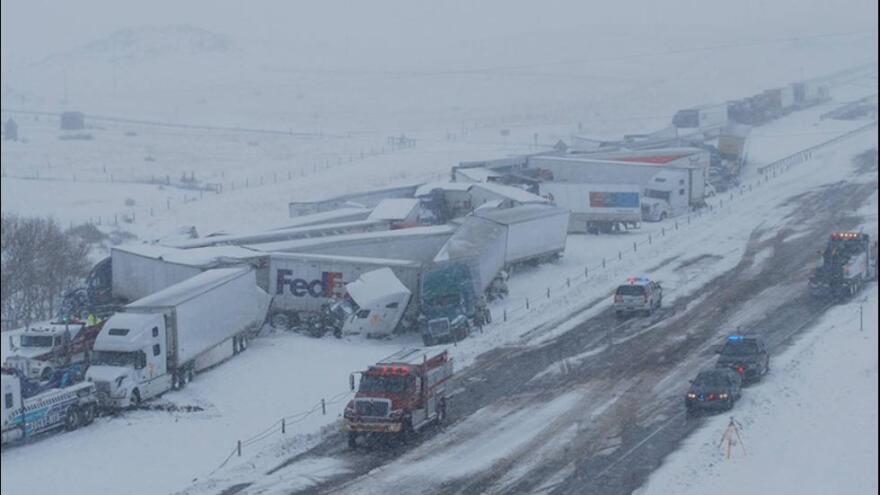Wyoming's high speed limits, road infrastructure, and high rates of drunk driving were the three primary factors that led to its ranking as the number one state for "most dangerous roads for drivers." At the top of those factors was drunk driving, with the average rate of alcohol-related traffic fatalities almost double that of the national average. Additionally, Wyoming's traffic infrastructure plays a unique part in the ranking.
"Speed is a major contributing factor to accidents, and especially to the severity of accidents," said David Straughan, author of the new study from Automoblog. "One of the more interesting things that stands out about Wyoming is that the maximum speed limits on urban highways and rural highways are the same, and that's not usually the case for states."
Wyoming has become accustomed to a number of unique traffic conditions not faced by other states, including heavy winds, hundred-mile stretches of bare-minimum infrastructure, long and harsh winters, and wildlife. This is in addition to the tens of thousands of drivers traveling through the state every day, including some who aren’t experienced in driving with things like winter roads or wildlife on the highway.
But the data is also skewed by Wyoming’s low population. When considering Wyoming's size, the ranking changes.
"If you measure it by fatalities per million miles driven, it's actually kind of towards the middle of the pack," said Straughan.
Straughan admitted that Wyoming is "a bit of an outlier" but emphasizes that these issues should still be taken seriously. Many of these accidents are avoidable, and Straughan said that makes car accidents a health issue first and foremost.
"Car accidents are really, really expensive for everyone involved,” he said. “And when they're bad enough, they can devastate an entire community. So I think it's a huge public health issue, and it's still pretty high up there with the causes of death in this country."
Straughan says that until recently, the rate of traffic fatalities across the nation had been going down steadily. This could be a result of social media campaigns, safety technology or mandatory traffic laws. Public transportation also plays a major role in preventing traffic deaths.
"The lowest scores that we've got are in Massachusetts, New Jersey, New York, Rhode Island, [Washington] D.C., Connecticut, and Maryland. All of these states have, by American standards, pretty robust public transportation," Straughan said.
Despite the low scores, Straughan understands that what works in New York probably won't work in Wyoming. "Wyoming just has to do what works for Wyoming."
According to the Bureau of Transportation Statistics, Americans take 1.1 billion trips a day. The country may have been built on rail, but it moves day-to-day by cars, and a lot of them. Straughan hopes this might start a larger conversation about what he describes as Americans' car dependency.
"I feel strongly that the overuse and overreliance on private vehicles is a problem. I think it is really bad for our health, I think that it is very destructive to the environment, and I think that there are better ways to do it," Straughan said.









